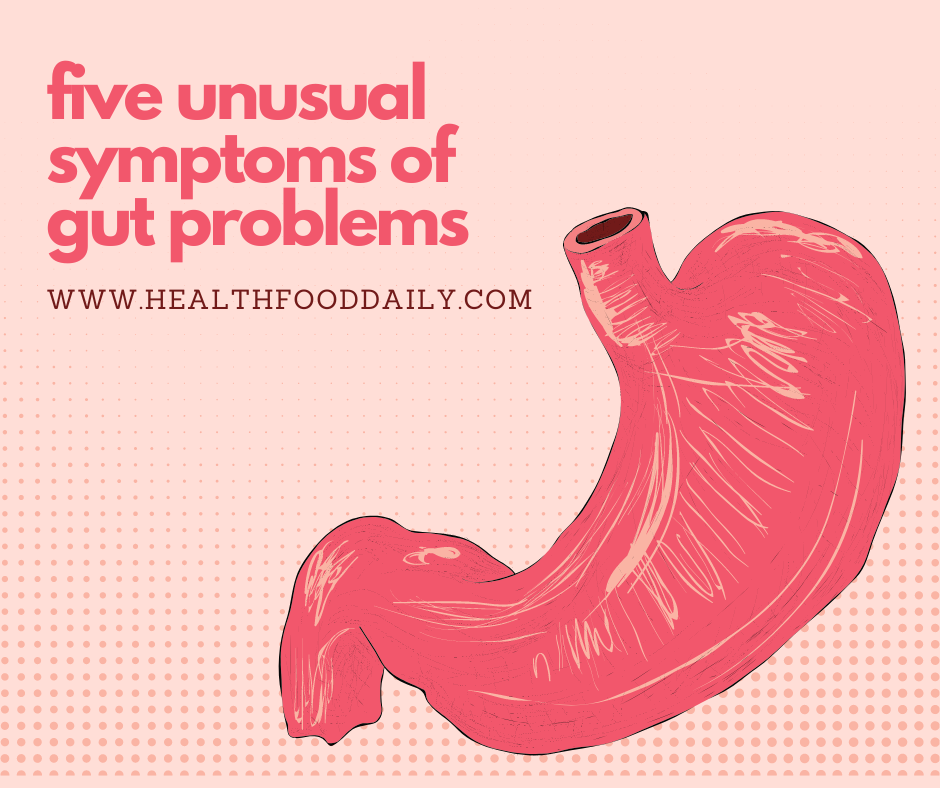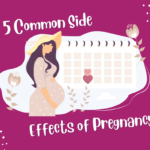

Symptoms of gut problems typically include bowel problems, abdominal pain, and nausea, but did you know there are other symptoms of it? Take a look at the list below and see if you’re experiencing any of it. If you are have problems or experiencing these symptoms, then you might want to take greater care of your gut!
1. Excessive Sugar Cravings
Anything with sugar is guaranteed to be addictive. Whether it’s chocolate or gummy bears or baked goods or even just plain fruit, sometimes it’s super difficult to resist that sweet taste on your tongue! Excessive sugar cravings have only been linked with the brain—when we feel sad or angry or tired, we want to eat sugar to make our brains feel better.
Apparently, however, sugar cravings aren’t just controlled by our brains. It is also affected by our gut microbiomes! According to research, our gut craves more sugar depending on the bacteria in our stomach. If the stomach wants more sugar, it’s going to demand more sugar by manipulating your eating behavior.
Thankfully, all it takes to not be manipulated is practicing self-control with your cravings. You’re not going to die if you don’t eat sugar, so refrain from eating added sugar for a few weeks. This will sort of reset your mind—eventually, you’ll stop craving sugar all the time. This will also allow your gut to reset, restore its natural balance and getting rid of problems and symptoms.
2. Food Intolerances
Food intolerances are different from food allergies. While the latter happens when our immune system reacts to certain foods, the former happens when our digestive system can technically digest certain foods but has difficulty doing so.
The symptoms differ too. Allergies cause breathing problems and itching, while food intolerances cause gastrointestinal problems like bloating, diarrhea, and cramping. Furthermore, allergies can be life-threatening while the worst-case scenario for intolerances is oftentimes longer time spent on the toilet.
Still, food intolerances can be quite uncomfortable. Thankfully, however, they’re also fixable if you know how to change your gut’s microbiome composition. According to research, some people may become intolerant of food because of changes in their gut. So, if you address the problems in your gut, you can get rid of symptoms of food intolerance too!
To do this, keep track of the food you eat in a journal. Whatever you’re intolerant to, eat less until you stop feeling discomfort. Then, gradually eat more of it again to see if that works out for you.
3. Unintentional Weight Gain
Did you know there’s a strong connection between weight gain and gut composition? Studies have shown that the more diverse your gut flora is, the less likely you will be overweight. That’s why some people report gaining weight when they take antibiotics—a diverse gut is crucial in maintaining your ideal weight.
The reason why this is so is that some bacteria are better at digesting than others, allowing you to absorb more nutrients from the food you eat. Additionally, some bacteria promote inflammatory properties in the body that can lead to insulin resistance, affecting your blood sugar levels.
So, if you want to lose weight, start by feeding yourself food that’ll help your gut flora flourish like fruits, vegetables, whole grains, and legumes. The key to proper weight loss is not limiting the food you eat but knowing what to replace your unhealthy foods with!
4. Mood Swings and Mental Health Issues
Have you ever wondered there are so many sayings out there that associate our gut with our feelings? When we’re paranoid, we have gut feelings. When we’re happy or excited, we have butterflies in our stomach. And when we are anxious or worried, we feel sick to our stomach. It seems like our stomachs have a mind of their own!
And in some bizarre way, they actually do. Our gut flora often communicates with other systems in the body like the endocrine and nervous systems that indirectly alter our mood. Indeed, researchers even refer to the gut as our second brain for this very reason!
People with symptoms of anxiety and depression are thought to have problems with their gut, stomach, and intestines as well. Some researchers suggest that consuming more prebiotic and probiotic foods might help relieve their symptoms and improve their mood.
Additionally, having a diet that’s rich in plant-based foods is also helpful for promoting mental well-being. These diets increase gut diversity and reduce gut inflammation, thereby indirectly minimizing mental problems.
5. Skin Problems
If you eat foods with lots of saturated fat, your gut flora becomes unbalanced and unhealthy. This then translates to skin conditions such as eczema, acne, dandruff, and more. In fact, scientists have discovered that people with skin conditions have vastly different gut flora compared to those without skin conditions. On top of that, people with skin conditions are also at higher risk of developing gastrointestinal conditions like inflammatory bowel disease.
So, if you want your outside to look clean and gorgeous, what you put inside of you should also be clean and gorgeous. You are what you eat, after all!

